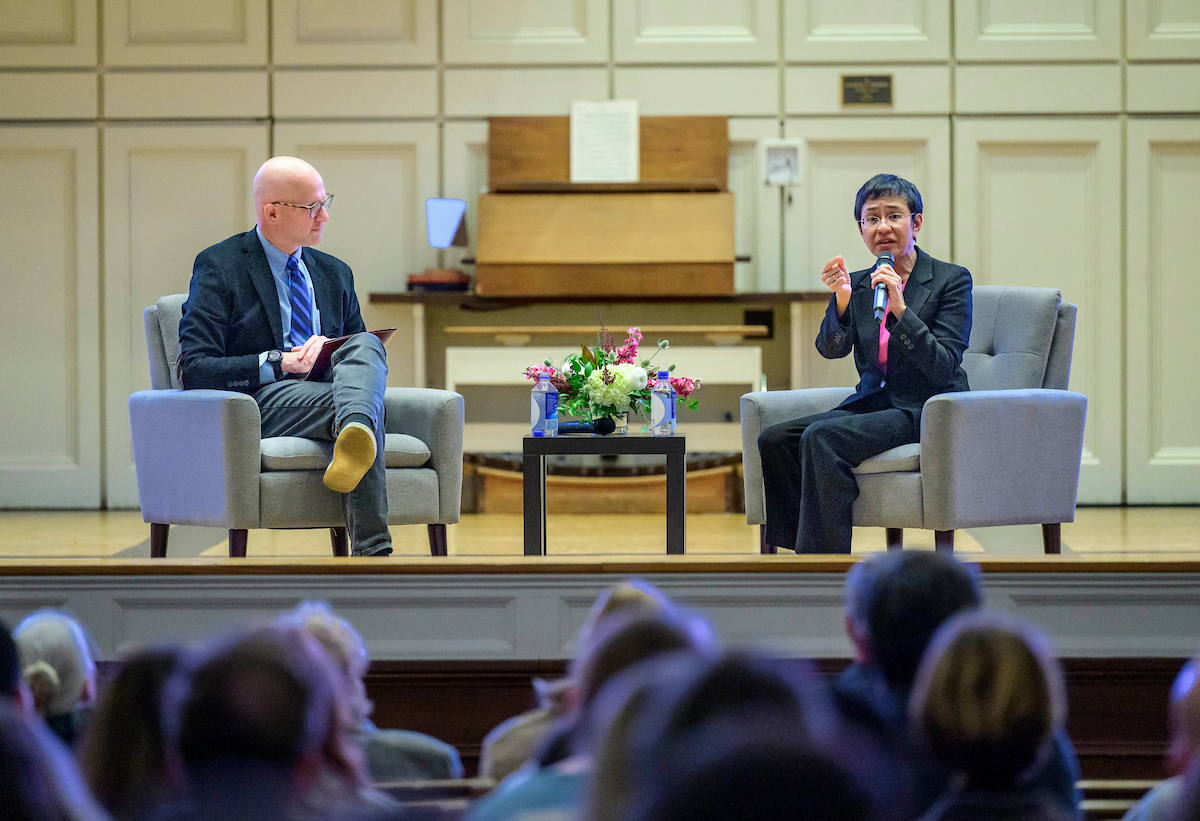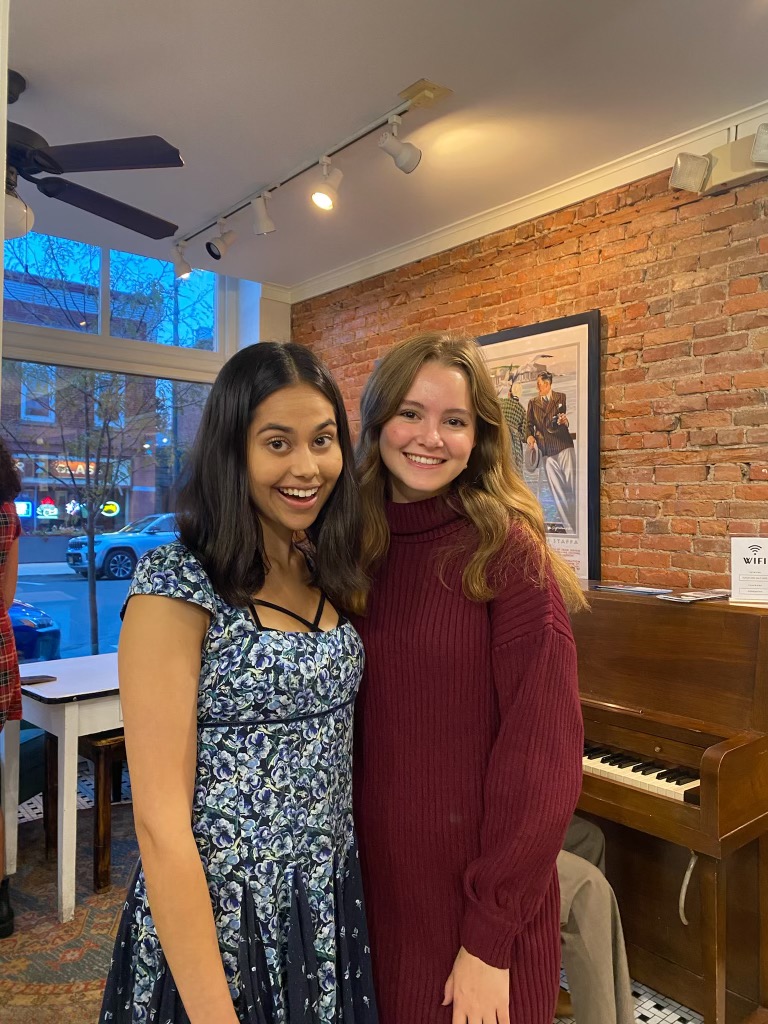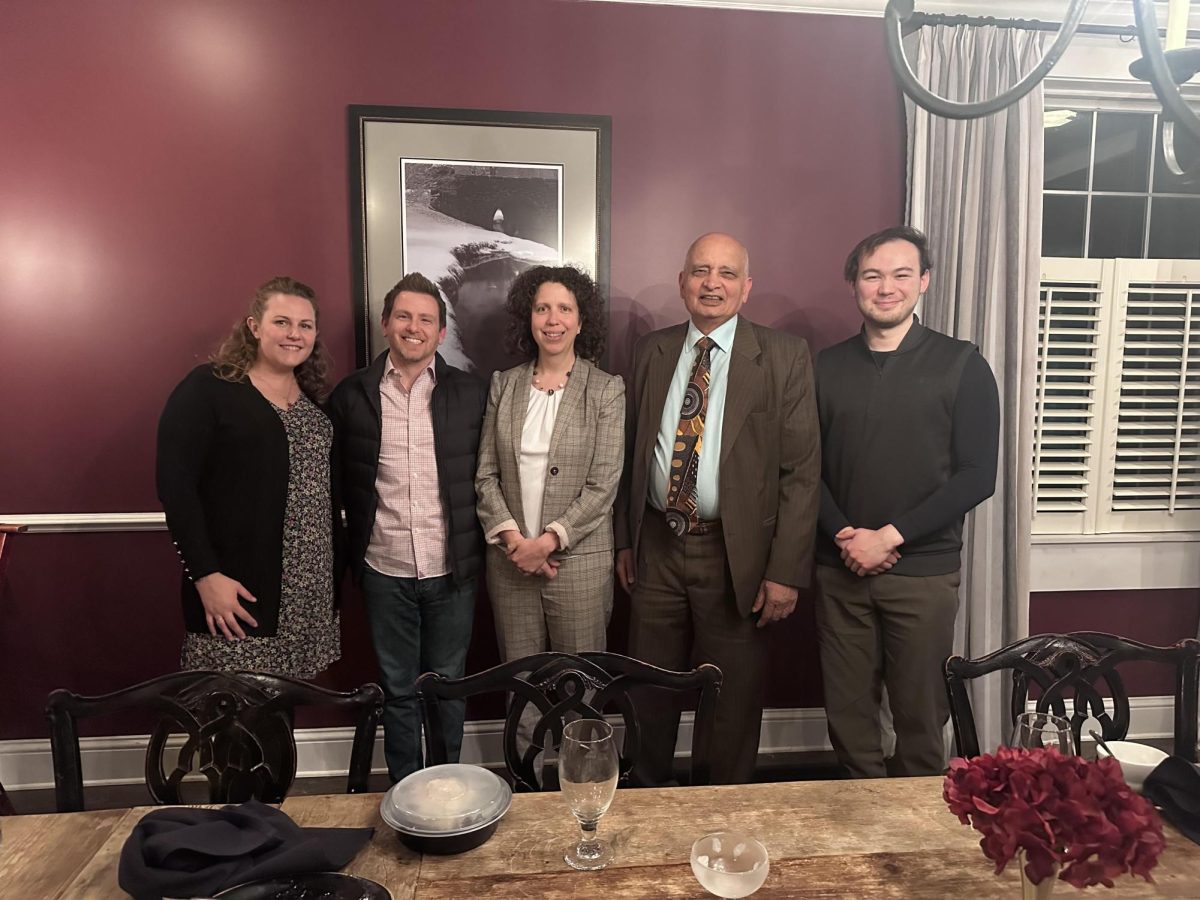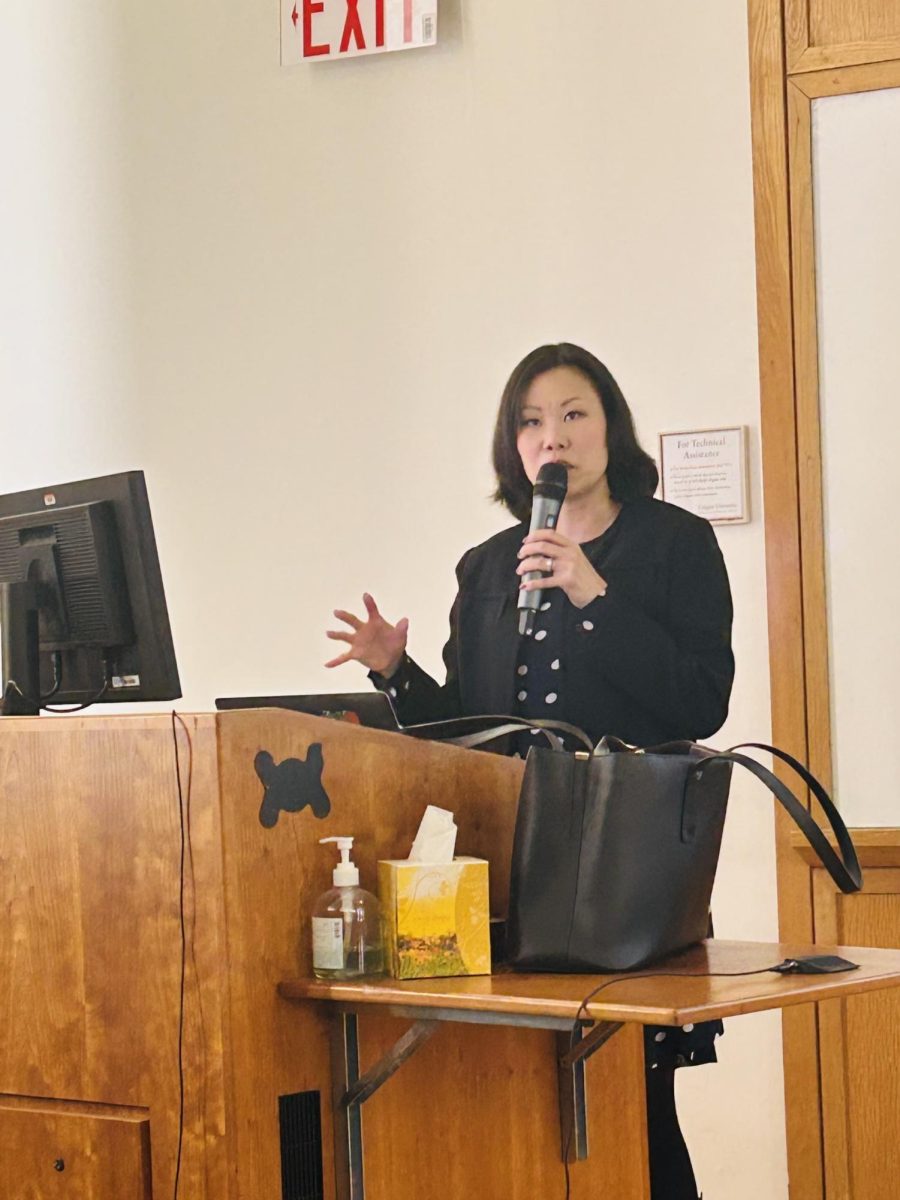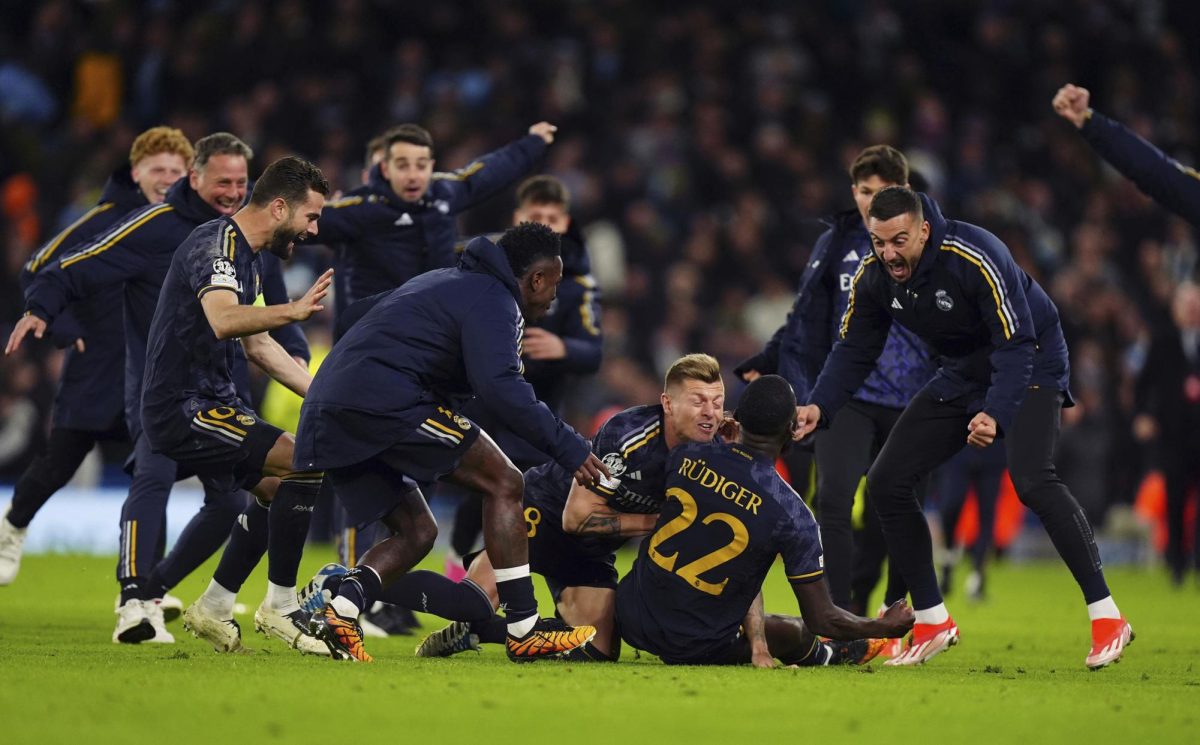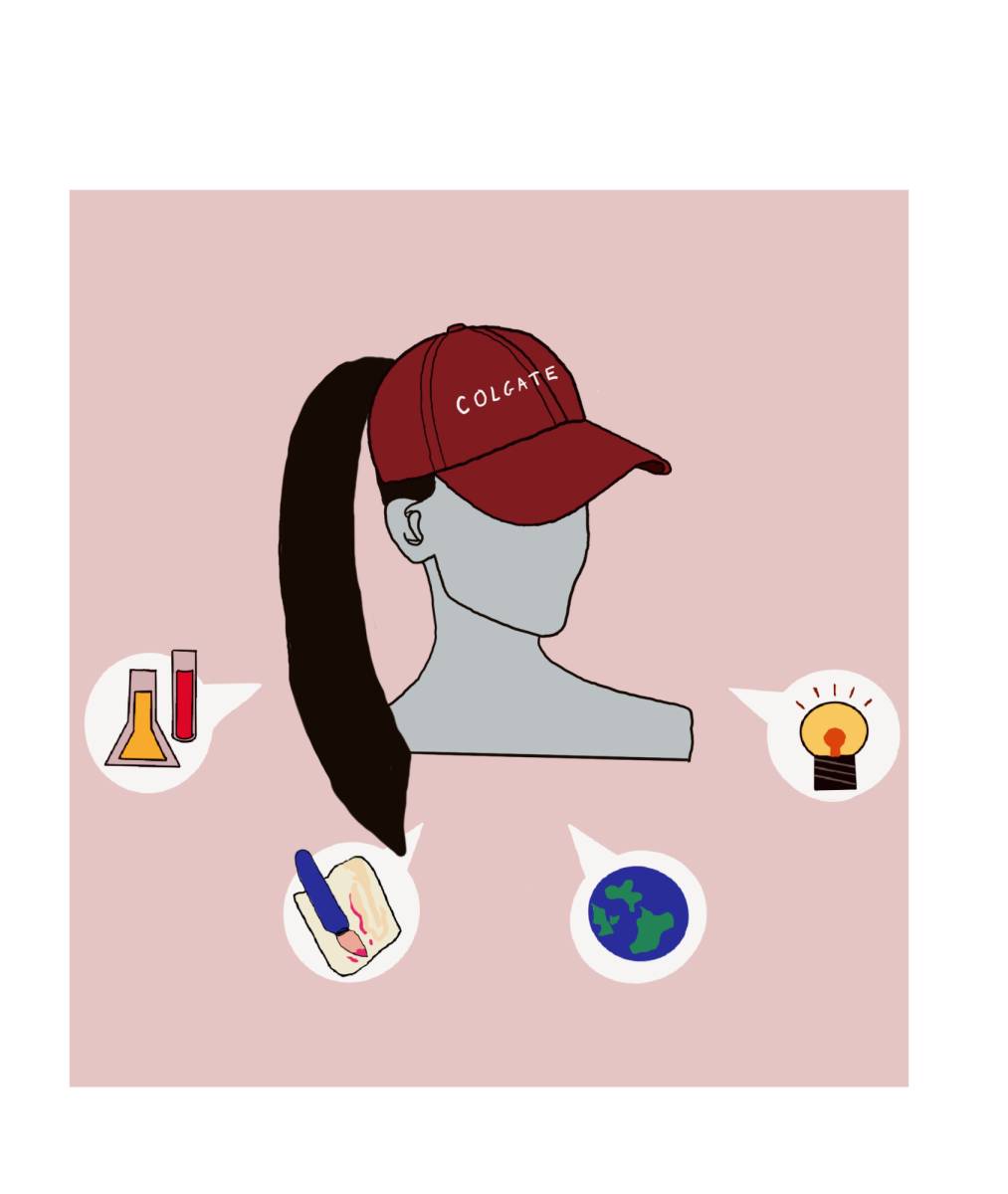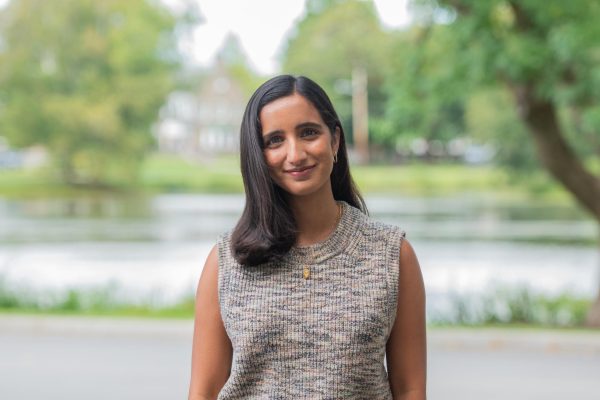Nobel Peace Prize-winning journalist and CEO of Rappler Maria Ressa visited Colgate University on Saturday, Oct. 28 as the speaker for the Kerschner Family Series Global Leaders at Colgate. Ressa’s book, “How to Stand up to a Dictator,” was selected as Colgate’s summer 2023 reading for the incoming first-year class.
Prior to the public event in the Colgate Memorial Chapel, Ressa participated in a private Q&A session in the Judd Chapel. Students in attendance included first-years who had read Ressa’s book over the summer and peace and conflict studies majors. Students submitted questions to be asked to Ressa in advance of the event. The questions centered around Ressa’s thoughts on the future of social media and journalism as well as her personal experience.
Ressa was born in the Philippines but grew up in Toms River, N.J. She was asked how her experience of being an outsider has informed her work.
“I never felt completely American when I was growing up in Toms River,” Ressa said. “I was shy and an introvert […]. I think it gave me the ability to observe without necessarily being judged. And then when it was my turn to figure out what was happening, I looked at it and I was okay with not being part of it […]. It’s good to look at it from the outside, because then how do you describe the entire thing?”
Ressa attended Princeton University where she initially intended to pursue the pre-med track. After completing her pre-med requirements in two years, however, Ressa pivoted and decided to pursue a different career. When asked what the biggest lesson she learned during college was, Ressa encouraged students to keep an open mind but also warned them about the dangers of social media.
“So I think that as you go through [college], keep your mind open. You know, you can always make choices. Part of what I’m worried about what social media is doing is that it forces you to make choices too quickly,” Ressa said. “So be clear, be clear for yourself, because this is you building yourself […]. This is a crucial time – a good, crucial time. But the world is not so good. So you actually also have to be defining yourself in a world that is churning.”
Elaborating on the topic of the dangers of social media, Ressa was asked if Generation Z can do anything to equip themselves to work towards a solution or if the current generation is a part of the problem.
“You are not the problem,” Ressa said. “You are what is being manipulated. […] Be defensive for yourself.”
Ressa asked the audience if they feel they have a choice in whether or not to be on social media. Much of the audience shook their heads.
“You want to develop the skills that help you make real connections and relationships […]. Just be careful,” Ressa said. “Your generation is the target. You are targeted. You are money for them.”
Ressa’s book discusses how social media platforms target their users biologically.
“When you’re afraid, when you’re angry, when you hate, when you’re feeling hateful about something, you wind up scrolling more,” Ressa said. “So that’s part of the thing that the employees and the tech companies do on purpose: use that to keep a scroll.”
In order to combat the dangers of social media, Ressa stresses ideas of civic duty and a community of action. Towards the end of the Q&A, Ressa turned to the protection of journalists and the future of the industry.
“There have been more journalists harassed, intimidated, jailed and killed in the last few weeks alone […]. So the sacrifices journalists have had are significantly worse,” Ressa said. “Having said that, what can we do to protect them? Choose what you believe. You have to know to at least choose organizations that have standards of ethics that are not meant to mislead […]. When you see a journalist under attack, jump in.”
Ressa explained that journalism is an industry that lost its business model to big tech. Alongside developments in artificial intelligence, Ressa is unsure how journalism will continue.
“I don’t know whether journalism will survive the next few years,” Ressa said. “Precisely because of the business models. And you will find this is our existential moment.”
The public event took place in Memorial Chapel and began around 6:30 p.m. Colgate University President Brian W. Casey introduced Associate Professor of History Alexander Karn, who provided an introduction to Ressa’s professional life and then began his interview with Ressa.
Many of the topics discussed with Ressa were similar to those discussed during the private event. Karn began the conversation by asking Ressa about her college experience, to which Ressa explained her view that being in one’s 20s is about forming and solidifying one’s beliefs and values. She used phrases such as “draw the line” and “hold the line” as ideas that would prove necessary for the rest of a person’s life, as it affirmed one’s values that, in turn, determined their actions.
The discussion between Karn and Ressa weaved through a number of other topics. Ressa talked about her time as a journalist in the Philippines, her time working at CNN and why she formed Rappler. Ressa discussed her argument that restrictions on social media to prevent disinformation and other dangerous consequences is not an infringement on free speech.
“Free speech is used to stifle free speech,” Ressa said.
Towards the end of the conversation, Ressa talked about the threats and arrests she has faced due to her journalism. Ressa told Karn and the audience that her fight against the attacks on her journalism has persevered despite intense pressure. During this time, Ressa spoke on preparing for the worst possible situation and the importance of continuing her work.
Karn later explained what stood out to him during Ressa’s talk.
“First, there’s Ressa’s extraordinary personal strength. To draw a moral line and hold that line in the face of so many insidious pressures and threats is a remarkable example,” Karn said. “I was also struck by the way she aligns journalism with justice. An ethical journalist endeavors to be objective and to incorporate different perspectives in her reporting, but the first commitment is always to truth because that’s the essential ingredient for creating a just world.”
Sophomore Logan Wilson attended the public event and was also struck by what Ressa discussed.
“Thinking back on her talk, I’ve really been reflecting on her analysis of technology and how it amplifies already existing problems like misinformation and mob mentality,” Wilson said. “Not only that, she also connects it back to politics and how these problems have helped many authoritarian movements around the world.”
Wilson also felt that Ressa gave good advice on how to navigate college.
“Hearing how she went from studying pre-med at Princeton to becoming a journalist in the Philippines really encouraged me, as a student who’s trying to learn what I want to spend my life doing,” Wilson said. “Knowing that she could completely change her career path and still be able to be so successful helped to ease some of my fears about finding a career I’m passionate about after college.”


